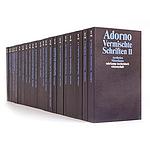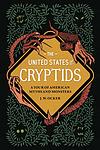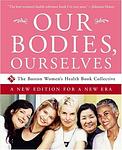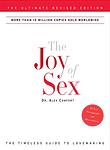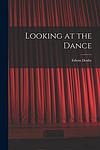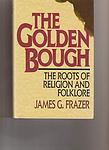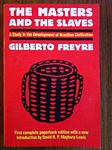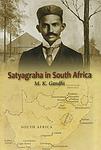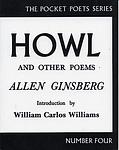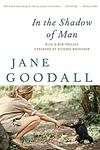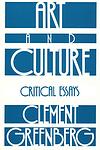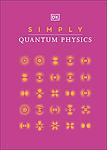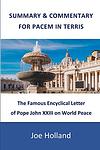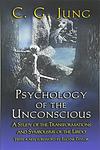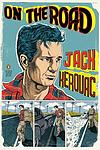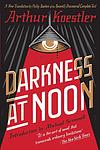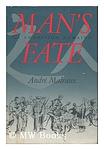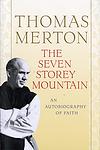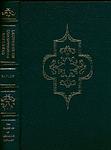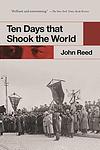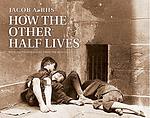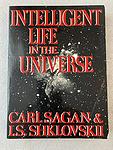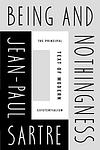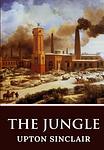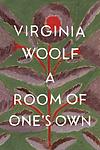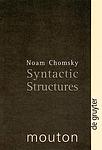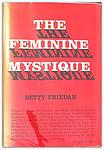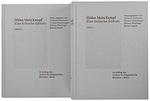100 Most Influential Books of the Century
This is one of the 273 lists we use to generate our main The Greatest Books list.
-
Study of Organic Inferiority and Its Physical Compensation: A Contribution to Clinical Medicine by Alfred Adler
This book delves into the concept of organic inferiority and how it physically manifests itself, providing significant contributions to the field of clinical medicine. It discusses the theory that certain physical and mental health issues arise from an individual's perceived inferiority and their subsequent attempts to compensate for it. The book provides a comprehensive study of this theory, exploring its implications for understanding human behavior and its potential applications in therapeutic settings.
-
Philosophy of Modern Music by Theodor Adorno
This book offers a comprehensive analysis and critique of modern music, focusing on the works of two prominent 20th-century composers. The author explores the relationship between society and music, arguing that the evolution of music reflects changing social and political landscapes. The text suggests that the dissonance and atonality in modern music reflects the alienation and disillusionment of modern society. The book is a seminal work in the field of music philosophy and is renowned for its in-depth exploration of the societal implications of musical developments.
-
Let Us Now Praise Famous Men by James Agee
This book is an in-depth examination of the lives of three tenant families in the South during the Great Depression. The author combines detailed descriptions, journalistic reporting, and poetic prose to capture the harsh realities of poverty, racial discrimination, and the struggle for survival. The book also includes evocative photographs that further illustrate the living conditions and daily lives of the families. The work is a profound exploration of the human condition, offering a raw and unflinching look at the effects of economic and social injustice.
-
Go Tell it on the Mountain by James Baldwin
This novel explores the role of the Christian Church in the lives of African-Americans, both as a source of repression and moral hypocrisy and as a source of inspiration and community. It also, more broadly, examines the role of the Pentecostal Church in the African American experience. The narrative focuses on a fourteen-year-old boy's struggle to discover his identity amidst a family filled with secrets and a life marked by a religious community's strict moral code.
-
The Second Sex by Simone de Beauvoir
This influential work explores the treatment and perception of women throughout history, arguing that women have been repressed and defined only in relation to men. The author presents a detailed analysis of women's roles in society, family, work, and in the creation of their own identities. She discusses the concept of 'the other' and how this has been used to suppress women, while also examining the biological, psychological, and societal impacts of this oppression. The book is a seminal text in feminist theory, challenging traditional notions of femininity and calling for equality and freedom for women.
-
Mastering the Art of French Cooking by Julia Child, Simone Beck, Louisette Bertholle
This book is a comprehensive guide to traditional French cuisine, providing detailed instructions on how to prepare classic French dishes. It covers everything from basic techniques to complex recipes, all explained in a clear and accessible way. The book also includes tips on selecting ingredients, planning meals, and pairing wines, making it an essential resource for anyone interested in French cooking.
-
Patterns of Culture by Ruth Benedict
"Patterns of Culture" explores the concept of culture as a collective personality, analyzing the patterns of behavior and thought that define different societies. The author uses examples from diverse cultures such as the Pueblo Indians and the Dobu Islanders to illustrate her point. The book argues that each culture has its own unique pattern and personality, which is shaped by its history, environment, and social structure. The author emphasizes the importance of understanding these patterns in order to fully understand and appreciate the diversity of human cultures.
-
The Engineering of Consent by Edward Bernays
The book is an exploration of the theory and practice of public relations. It discusses how the manipulation of public opinion is an essential part of democracy. The author argues that professional public relations counsel, understanding the social science and psychology, can help to shape and sway public opinion. By using these techniques, the public can be led in a certain direction for the benefit of the client, whether that client is a business or a political candidate.
-
Our Bodies, Ourselves by Unknown
This book is a comprehensive guide to women's health and sexuality, covering a wide range of topics from puberty to menopause. It emphasizes the importance of self-care and provides practical information on topics such as reproductive health, sexual orientation, body image, mental health, and domestic violence. The book is designed to empower women to make informed decisions about their health and well-being, and it encourages them to take control of their own bodies. It also includes personal stories and experiences from diverse women, reflecting a wide range of perspectives and experiences.
-
I and Thou by Martin Buber
This philosophical work explores the concept of relationships and the nature of dialogue. The author suggests that human life finds its meaningfulness in relationships, which he divides into two categories: "I-It" and "I-Thou". The "I-It" relationship is characterized by a detached and objective perspective, while the "I-Thou" relationship involves a deep sense of connection and mutual existence. The book argues that modern society, with its emphasis on individualism and materialism, often neglects the "I-Thou" relationship, leading to a loss of genuine human connection.
-
A Clockwork Orange by Anthony Burgess
This novel follows the life of a violent young man named Alex, who is part of a youth subculture in a dystopian future England. Alex and his gang engage in a nightmarish spree of rape, assault, and robbery, until he is arrested and subjected to a psychological experiment by the government to "cure" him of his violent tendencies. The novel explores themes of free will, morality, and the nature of evil, while using a unique slang language invented by the author.
-
The Stranger by Albert Camus
The narrative follows a man who, after the death of his mother, falls into a routine of indifference and emotional detachment, leading him to commit an act of violence on a sun-drenched beach. His subsequent trial becomes less about the act itself and more about his inability to conform to societal norms and expectations, ultimately exploring themes of existentialism, absurdism, and the human condition.
-
How to Win Friends and Influence People by Dale Carnegie
This iconic self-help book provides practical advice and techniques for mastering interpersonal skills and improving communication. It emphasizes the importance of understanding others' perspectives, showing genuine interest in people, and making others feel important. The book offers strategies for handling people without arousing resentment, encouraging others to share their ideas, and changing people's behavior without causing offense or arousing resentment. It also provides tips on how to make a good first impression, become a good conversationalist, and inspire enthusiasm among associates.
-
Silent Spring by Rachel Carson
This influential environmental science book presents a detailed and passionate argument against the overuse of pesticides in the mid-20th century. The author meticulously describes the harmful effects of these chemicals on the environment, particularly on birds, hence the metaphor of a 'silent spring' without bird song. The book played a significant role in advancing the global environmental movement and led to a nationwide ban on DDT and other pesticides in the United States.
-
The Cherry Orchard by Anton Chekhov
"The Cherry Orchard" is a classic play about an aristocratic Russian woman and her family as they return to their family estate, which includes a large and well-known cherry orchard. The family is on the brink of financial ruin and the estate is slated to be auctioned off. Despite various attempts to save their beloved home and orchard, they are ultimately unable to prevent the sale. The play is a poignant reflection on the changing social order and the decline of the aristocracy in Russia at the turn of the 20th century.
-
2001: A Space Odyssey by Arthur C. Clarke
This science fiction novel follows a voyage to Jupiter with the sentient computer HAL after the discovery of a mysterious black monolith affecting human evolution. Dealing with themes of existentialism, human evolution, technology, artificial intelligence and extraterrestrial life, it is a journey of discovery that takes a dangerous turn when the onboard computer begins to malfunction. The story is a complex mix of science, philosophy, and conjecture.
-
The Joy of Sex by Alex Comfort
This book serves as a comprehensive guide to human sexual behavior, offering detailed illustrations and instructions on various sexual techniques and positions. The author emphasizes the importance of mutual consent, respect, and emotional intimacy in sexual relationships, and promotes a positive and open-minded attitude towards sex. The book also provides advice on sexual health and contraception, making it a valuable resource for anyone seeking to enhance their sexual knowledge and experiences.
-
Heart of Darkness by Joseph Conrad
This classic novel follows the journey of a seaman who travels up the Congo River into the African interior to meet a mysterious ivory trader. Throughout his journey, he encounters the harsh realities of imperialism, the brutal treatment of native Africans, and the depths of human cruelty and madness. The protagonist's journey into the 'heart of darkness' serves as both a physical exploration of the African continent and a metaphorical exploration into the depths of human nature.
-
Looking at Dance by Edwin Denby
"Looking at Dance" is an insightful exploration of the world of dance, offering a unique perspective on the art form through the eyes of a renowned critic. The book delves into the technical aspects, aesthetics, and the emotional impact of dance, providing a comprehensive understanding of various dance styles. It includes critical analysis of performances by iconic dancers and choreographers, offering readers a deeper appreciation and understanding of the art of dance.
-
The School and the Child by John Dewey
"The School and the Child" is a thought-provoking work that delves into the philosophy of education. The author advocates for a progressive and child-centered approach to education, asserting that learning should be interactive, practical, and relevant to the child's life. The book argues against the traditional, rigid, and teacher-centered methods of education, emphasizing the importance of fostering creativity, critical thinking, and problem-solving skills in students. It also highlights the role of schools in shaping the social, emotional, and moral development of children.
-
Genetics and the Origin of Species by Theodosius Dobzhansky
This book is a seminal work in the field of evolutionary biology that introduces the concept of genetics as a fundamental mechanism in the process of evolution and speciation. The author combines theoretical concepts and empirical data to argue that natural selection and genetic variability are the driving forces behind the evolution of species. He also discusses the role of geographic isolation in speciation and provides a comprehensive overview of the genetic basis of evolutionary change.
-
Relativity by Albert Einstein
This book is a comprehensive introduction to the theory of relativity written by the physicist who developed the theory. It covers both the special and general theories of relativity and provides an accessible explanation of the physics involved, including the nature of light, time, and gravity. The book also discusses the philosophical implications of relativity and its impact on our understanding of reality. Written for a general audience, it aims to make complex scientific concepts understandable to non-experts.
-
Prufrock and Other Observations by T. S. Eliot
This collection of poems presents a critique of society through the lens of a disillusioned modern man. The titular character is a middle-aged man contemplating the emptiness and lack of fulfillment in his life. The poems delve into themes of despair, regret, and existential angst, reflecting the disillusionment of the post-World War I generation. The poems are characterized by their innovative use of dramatic monologue, stream of consciousness, and other modernist techniques.
-
The Great Gatsby by F. Scott Fitzgerald
Set in the summer of 1922, the novel follows the life of a young and mysterious millionaire, his extravagant lifestyle in Long Island, and his obsessive love for a beautiful former debutante. As the story unfolds, the millionaire's dark secrets and the corrupt reality of the American dream during the Jazz Age are revealed. The narrative is a critique of the hedonistic excess and moral decay of the era, ultimately leading to tragic consequences.
-
The Diary of a Young Girl by Anne Frank
This book is a real-life account of a young Jewish girl hiding from the Nazis during World War II, written in diary format. The girl and her family are forced to live in a secret annex in Amsterdam for two years, during which she writes about her experiences, fears, dreams, and the onset of adolescence. The diary provides a poignant and deeply personal insight into the horrors of the Holocaust, making it a powerful testament to the human spirit.
-
Man's Search for Meaning by Victor Frankl
This book is a memoir written by a psychiatrist who survived the Nazi concentration camps during World War II. The author shares his experiences in the camps and his psychological approach to surviving and finding meaning amidst extreme suffering. He introduces his theory of logotherapy, which suggests that life's primary motivational force is the search for meaning, and argues that even in the most absurd, painful, and dehumanized situation, life can be given meaning.
-
The Golden Bough by James George Frazer
"The Golden Bough" is a comprehensive study on mythology and religion, exploring the common themes found in different cultures around the world. The author uses a wide range of sources to argue that human belief progressed through three stages: primitive magic, replaced by religion, which in turn was replaced by science. The book delves into various rituals and customs, including the concept of the dying god in mythology and the role of fertility rites in agriculture. The author's theories have had a profound influence on both literature and anthropology.
-
The Interpretation of Dreams by Sigmund Freud
This groundbreaking work explores the theory that dreams are a reflection of the unconscious mind and a means of understanding our deepest desires, anxieties, and fantasies. The book delves into the symbolism of dreams and their connection to repressed thoughts and experiences, proposing that they are a form of wish fulfillment. The author also introduces the concept of "dream work," which transforms these unconscious thoughts into the content of dreams, and discusses various methods of dream interpretation.
-
The Masters and the Slaves by Gilberto Freyre
This book is a sociological and anthropological study of 19th century Brazil, focusing on the relationship between the Portuguese colonists and the African slaves. It delves into the racial and cultural synthesis that occurred, resulting in the unique Brazilian identity. The book is known for its controversial assertion that the Portuguese colonizers were more humane and less racist than their North American counterparts, leading to a more harmonious racial integration in Brazil.
-
Satyagraha in South Africa by Gandhi
This book is a personal account of the author's experiences during the Indian struggle for civil rights in South Africa. It details the development and implementation of the concept of Satyagraha, or non-violent resistance, as a means of combating social injustice. The book provides a unique insight into the author's philosophies and strategies of peaceful protest, including his belief in the power of truth and the necessity of self-sacrifice in the fight against oppression.
-
One Hundred Years of Solitude by Gabriel Garcia Marquez
This novel is a multi-generational saga that focuses on the Buendía family, who founded the fictional town of Macondo. It explores themes of love, loss, family, and the cyclical nature of history. The story is filled with magical realism, blending the supernatural with the ordinary, as it chronicles the family's experiences, including civil war, marriages, births, and deaths. The book is renowned for its narrative style and its exploration of solitude, fate, and the inevitability of repetition in history.
-
Howl and Other Poems by Allen Ginsberg
"Howl and Other Poems" is a collection of verse that critiques and challenges societal norms and conventions, particularly those of post-World War II America. The title poem, "Howl", is a raw and passionate indictment of capitalist society and its suppression of individuality and human freedom. The collection also explores themes of mental illness, sexuality, spirituality, and the human condition, with a focus on the beatnik and countercultural movements of the time.
-
In the Shadow of Man by Jane Goodall
This book provides a fascinating and detailed account of the author's groundbreaking research on wild chimpanzees in Africa. The author offers insights into the complex social structure, behavior, and personalities of these primates, challenging the then-prevailing scientific belief that only humans were capable of having personalities and emotions. Through her studies, the author revolutionized our understanding of our closest relatives in the animal kingdom, and she also discusses the threats to their survival and the many challenges they face due to human activities.
-
Creatures that Once Were Men by Maksim Gorky
"Creatures that Once Were Men" is a collection of short stories that depict the harsh realities of life in the lower classes of Russian society. The stories are set in a night refuge for the homeless, where the characters, despite their grim circumstances, strive to maintain their humanity. Through their struggles, the author explores themes of poverty, addiction, despair, and the human spirit's resilience.
-
Men are from Mars, Women are from Venus by John Gray
This self-help book offers insight into the fundamental differences between men and women, suggesting they might as well be from different planets. It explores how these differences can create misunderstandings and conflicts in relationships, and provides practical advice on how to overcome these issues. The book emphasizes the importance of acknowledging and respecting these differences to foster better communication, understanding, and ultimately, stronger relationships.
-
Art and Culture: Critical Essays by Clement Greenberg
"Art and Culture: Critical Essays" is a collection of 20th-century critiques on art and aesthetics, highlighting the author's views on avant-garde, kitsch, and modernist art. The book delves into the author's perspective on the role of art in society, the evolution of art, and its intrinsic connection to culture. It also explores the author's critical analysis of artists and their works, offering deep insights into the world of visual arts.
-
Roots by Alex Haley
This groundbreaking historical novel follows several generations of an African American family, beginning with Kunta Kinte, a man captured in Gambia in the 18th century and sold into slavery in the United States. Through Kinte and his descendants, the narrative explores the brutal realities of slavery and its aftermath, the struggle for freedom and civil rights, and the perseverance of a family through immense hardship. The story is based on the author's own family history, making it a significant work in the exploration of African American heritage and identity.
-
Being and Time by Martin Heidegger
Being and Time is a seminal work that explores the concept of "being" through a detailed analysis of human existence. The book delves into existential and phenomenological thought, examining how humans relate to the world and their own existence. The author argues that people are always "being-in-the-world" and that understanding this fundamental state is crucial to comprehending the broader concept of being. The work also introduces the concept of "Dasein," a term used to describe the specific type of being that humans possess.
-
Uncertainty Principle by Werner Heisenberg
"Uncertainty Principle" is a seminal work in quantum mechanics that explores the concept that it's impossible to simultaneously measure the exact position and momentum of a particle. This principle has profound implications for our understanding of the physical world, challenging traditional notions of cause and effect and deterministic laws of physics. The book details the development, interpretation, and implications of this principle, providing a comprehensive overview of one of the most fundamental concepts in quantum physics.
-
Catch-22 by Joseph Heller
The book is a satirical critique of military bureaucracy and the illogical nature of war, set during World War II. The story follows a U.S. Army Air Forces B-25 bombardier stationed in Italy, who is trying to maintain his sanity while fulfilling his service requirements so that he can go home. The novel explores the absurdity of war and military life through the experiences of the protagonist, who discovers that a bureaucratic rule, the "Catch-22", makes it impossible for him to escape his dangerous situation. The more he tries to avoid his military assignments, the deeper he gets sucked into the irrational world of military rule.
-
The Sun Also Rises by Ernest Hemingway
The novel is a poignant tale set in the 1920s post-World War I era, focusing on a group of American and British expatriates living in Paris who travel to Pamplona, Spain for the annual Running of the Bulls. The story explores themes of disillusionment, identity, and the Lost Generation, with the protagonist, a war veteran, grappling with impotence caused by a war injury. The narrative is steeped in the disillusionment and existential crisis experienced by many in the aftermath of the war, and the reckless hedonism of the era is portrayed through the characters' aimless wanderings and excessive drinking.
-
Steppenwolf by Hermann Hesse
The novel presents a poignant exploration of a man's struggle with his dual nature. The protagonist, a middle-aged man, finds himself torn between his humanistic, intellectual tendencies and his more primitive, wolf-like instincts. As he navigates his way through the surreal and sometimes hallucinatory world, he encounters various characters who challenge his views and push him towards self-discovery and transformation. The narrative delves into themes of alienation, the subconscious mind, and the search for meaning in life.
-
Reflections from Captivity by Ho Chi Minn
"Reflections from Captivity" is a poignant narrative that chronicles the author's time spent in prison during a turbulent period in his country's history. The author provides an intimate look into his struggles, fears, and hopes, offering a unique perspective on the human spirit and resilience in the face of adversity. Through his raw and honest reflections, the book serves as a powerful testament to the strength of the human spirit and the will to survive.
-
Pragmatism by William James
The book in question is a seminal work in the philosophical tradition of pragmatism, which argues that the truth of ideas is measured not by their correspondence to an objective reality, but by their practical effects and utility. The author challenges the notion of fixed, absolute truths, proposing instead that beliefs should be seen as tools for action and that their validity depends on their success in solving problems and guiding experiences. Through a series of lectures, the text explores the implications of this philosophy for various fields, including religion, metaphysics, and science, ultimately advocating for a more flexible, open-ended approach to thinking and a tolerance for diverse perspectives in the pursuit of knowledge and understanding.
-
Encyclicals of Pope John XXIII by Pope John XXIII
This book is a collection of the encyclicals issued by Pope John XXIII during his tenure as the head of the Catholic Church. The encyclicals, or papal letters, address a variety of topics including social justice, peace, human rights, and the role of the Church in the modern world. They provide insight into the Pope's theological and philosophical perspectives, as well as his vision for the Church and its mission in society.
-
Ulysses by James Joyce
Set in Dublin, the novel follows a day in the life of Leopold Bloom, an advertising salesman, as he navigates the city. The narrative, heavily influenced by Homer's Odyssey, explores themes of identity, heroism, and the complexities of everyday life. It is renowned for its stream-of-consciousness style and complex structure, making it a challenging but rewarding read.
-
Psychology of the Unconscious by Carl Jung
"Psychology of the Unconscious" is a pioneering work that explores the complex landscape of the human unconscious, introducing theories that would later become central to understanding personality and human psychology. The book delves into the idea of the collective unconscious, archetypes, and the process of individuation. It further discusses the role of dreams, myths, and symbols in understanding and interpreting the unconscious mind. The author uses case studies and examples from various cultures to support his theories, offering a comprehensive view of the human psyche.
-
The Trial by Franz Kafka
The book revolves around a bank clerk who wakes one morning to find himself under arrest for an unspecified crime. Despite not being detained, he is subjected to the psychological torment of a bizarre and nightmarish judicial process. The story is a critique of bureaucracy, exploring themes of guilt, alienation and the inefficiency of the justice system.
-
On the Road by Jack Kerouac
This novel follows the story of a young man and his friend as they embark on a series of cross-country road trips across America during the late 1940s and early 1950s. The protagonist, driven by a desire for freedom and a quest for identity, encounters a series of eccentric characters and experiences the highs and lows of the Beat Generation. The narrative is a testament to the restlessness of youth and the allure of adventure, underscored by themes of jazz, poetry, and drug use.
-
The General Theory of Employment, Interest and Money by John Maynard Keynes
This influential economic treatise presents a groundbreaking theory that challenges classical economics, asserting that aggregate demand, driven by public and private sector spending, is the primary factor influencing economic activity and employment levels. The book also introduces the concept of fiscal and monetary policies as tools to manage economic downturns, thus shaping the foundation of modern macroeconomics. It further critiques the idea that market economies would automatically provide full employment and argues for active government intervention to prevent economic recessions and depressions.
-
Sexual Behavior in the Human Male by Alfred C. Kinsey
This book is a groundbreaking scientific study that provides an in-depth analysis of human male sexual behavior. It presents a comprehensive survey of male sexual activities and preferences, based on thousands of interviews and case studies. The book challenges many societal norms and taboos of its time by revealing the diversity and complexity of male sexual practices. It also explores the psychological, social, and biological factors that influence male sexuality.
-
Darkness at Noon by Arthur Koestler
"Darkness at Noon" is a novel set during the Stalinist purges in Russia in the 1930s. The story follows an old Bolshevik, who is imprisoned and psychologically tortured by the government he helped create. As he reflects on his life and the choices he made, he grapples with the betrayal of his revolutionary ideals and the corruption of the Soviet regime. The narrative provides a profound exploration of the moral danger inherent in a system that is willing to sacrifice the individual for the supposed collective good.
-
The Structure of Scientific Revolutions by Thomas Kuhn
This influential book examines the history of science, focusing on the process of scientific revolutions. The author argues that scientific progress is not a linear, continuous accumulation of knowledge, but rather a series of peaceful interludes punctuated by intellectually violent revolutions. During these revolutions, known as paradigm shifts, the old scientific worldview is replaced by a new one. The book also popularized the term 'paradigm shift' and challenged the previously accepted view of science as a steadily progressive discipline.
-
Lady Chatterley's Lover by D. H. Lawrence
"Lady Chatterley's Lover" is a controversial novel that explores themes of class, sexuality, and the human condition. The story revolves around a young, upper-class woman married to a paralyzed war veteran who, feeling emotionally and physically neglected, embarks on a passionate affair with the estate's gamekeeper. The narrative delves into the protagonist's sexual awakening and her struggle against societal norms, ultimately advocating for emotional honesty and physical intimacy as essential components of a fulfilling life.
-
The Golden Notebook by Doris Lessing
The novel centers around a woman named Anna Wulf, a writer who keeps four notebooks, each representing a different aspect of her life: her experiences in Africa, her current life in London, a novel she is writing, and her personal experiences. As Anna's mental state deteriorates, she attempts to unify her fragmented self in a fifth notebook, the golden notebook. The novel explores themes of mental breakdown, communism, the changing role of women, and the fear of nuclear war.
-
The Raw and the Cooked by Claude Lévi-Strauss
"The Raw and the Cooked" is an anthropological analysis of the myths and customs of tribal societies, particularly those in South America. The author explores the concept of binary opposition, such as raw versus cooked or nature versus culture, as a fundamental structure in these societies' mythologies. The book provides a detailed and systematic study of the symbolic use of food and cooking in primitive societies, suggesting that the way a society categorizes food is a window into understanding its culture.
-
Babbitt by Sinclair Lewis
"Babbitt" is a satirical novel that explores the life of a prosperous, middle-aged businessman living in a Midwestern city during the 1920s. Despite his apparent success and conformity to societal norms, the protagonist feels a deep dissatisfaction with his life and the monotony of his daily routines. This leads him to rebel against the conservative values of his community, resulting in personal and social upheaval. The book critically examines the American middle class and the pressures of conformism, materialism, and status anxiety.
-
On Aggression by Konrad Lorenz
"On Aggression" is a scientific study that explores the concept of aggression in both animals and humans from an ethological (study of animal behavior) perspective. The author argues that aggression is an innate and necessary instinct that has helped species survive and evolve. However, he also emphasizes that this instinct, when unchecked or misdirected, can lead to destructive behavior and violence. The book provides a comprehensive analysis of the biological roots of aggression, its role in the evolution and survival of species, and its implications for human society.
-
Man's Fate by Andre Malraux
Set in 1920s Shanghai during a time of political upheaval, the novel explores the existential themes of life, death, and the human condition through the experiences of a group of revolutionaries. The narrative follows their struggles and sacrifices for their cause, the Communist revolution, and their inevitable confrontation with their own mortality and the harsh realities of life. The book delves into the complexities of political ideologies, human relationships and the constant struggle between hope and despair.
-
The Magic Mountain by Thomas Mann
In this novel, the protagonist, a young, ordinary man, visits his cousin at a tuberculosis sanatorium in the Swiss Alps. Intending to stay for only a few weeks, he ends up remaining there for seven years, becoming a patient himself. The book explores his experiences and relationships with other patients and staff, delving into philosophical discussions on life, time, and the nature of disease. It also provides a vivid portrayal of the European society and intellectual life on the eve of World War I.
-
Quotations from Chairman Mao by Mao
This book is a collection of speeches and writings by the former leader of the People's Republic of China. It covers a wide range of topics including communism, revolution, class struggle, and the correct handling of contradictions among the people. The book was published with the intention of promoting the leader's ideology and was widely distributed during the Cultural Revolution. It was considered an essential guide to life and politics in China during this period.
-
Motivation and Personality by Abraham Maslow
This book is a seminal work in the field of psychology, focusing on the theory of human motivation and personality. The author posits that humans have a hierarchy of needs, with basic survival needs at the bottom and self-actualization at the top. This hierarchy influences all human behavior, as individuals strive to meet these needs in order. The book also explores the concept of peak experiences, moments of extraordinary happiness and fulfillment, which are often associated with self-actualization. It is a must-read for anyone interested in understanding human behavior and motivation.
-
Coming of Age in Samoa by Margaret Mead
"Coming of Age in Samoa" is a groundbreaking anthropological study that explores adolescence, sexuality, and social norms in Samoan society. The author lived among the Samoans in the 1920s, observing and recording their way of life, particularly focusing on the experiences of teenage girls. The book challenges Western views on sexual morality and the nature versus nurture debate, suggesting that culture plays a significant role in adolescent development and behavior. The author's observations indicate that Samoan teenagers face less stress and confusion than their American counterparts, largely due to their society's relaxed attitudes towards sex and clear societal roles.
-
The Seven Storey Mountain by Thomas Merton
This book is an autobiography of a man who, after a youth filled with worldly experiences and ambitions, converts to Catholicism and chooses to live his life in a Trappist monastery. His journey from a secular life to a deeply spiritual one is filled with introspection and profound insights about the nature of faith and the quest for a meaningful life. His story is a powerful testament to the pull of spiritual enlightenment and the peace that comes from dedicating one's life to a higher purpose.
-
The Power Elite by C. Wright Mills
"The Power Elite" is a sociological study that explores the relationships and interconnections among the political, military, and economic elite in the United States, suggesting that they form a distinct, centralized ruling power structure. The author argues that this group operates outside of the democratic process and has significant influence over the nation's policies and decisions. The book also discusses the implications of this power concentration on American democracy and society.
-
A Critique of the Theory of Evolution by Thomas Hunt Morgan
The book is a scientific critique of the theory of evolution, presenting arguments and evidence against certain aspects of the theory. The author, a prominent biologist, explores the limitations and inconsistencies in the theory of evolution, challenging the widely accepted Darwinian principles. He presents alternative theories and hypotheses, backed by his own research and observations, to explain the process of species development and genetic inheritance, thereby attempting to provide a more comprehensive understanding of biological evolution.
-
The Montessori Method by Maria Montessori
The book provides an in-depth exploration of the educational method developed by the author for teaching children. It emphasizes the importance of self-directed activity, hands-on learning, and collaborative play in child development. The book also discusses the author's philosophy of observing children in a "prepared environment" where they have access to materials and experiences to aid their learning. The method encourages children to make creative choices in their learning, while the teacher guides the process. The book also delves into the author's belief in the critical importance of the early years of a child's life in shaping their future development.
-
Lolita by Vladimir Nabokov
The novel tells the story of Humbert Humbert, a man with a disturbing obsession for young girls, or "nymphets" as he calls them. His obsession leads him to engage in a manipulative and destructive relationship with his 12-year-old stepdaughter, Lolita. The narrative is a controversial exploration of manipulation, obsession, and unreliable narration, as Humbert attempts to justify his actions and feelings throughout the story.
-
Nineteen Eighty Four by George Orwell
Set in a dystopian future, the novel presents a society under the total control of a totalitarian regime, led by the omnipresent Big Brother. The protagonist, a low-ranking member of 'the Party', begins to question the regime and falls in love with a woman, an act of rebellion in a world where independent thought, dissent, and love are prohibited. The novel explores themes of surveillance, censorship, and the manipulation of truth.
-
Conditioned Reflexes by Ivan Pavlov
"Conditioned Reflexes" is a groundbreaking work that delves into the study of behaviorism and the concept of classical conditioning. The author, a renowned physiologist, presents his findings on how an organism's responses can be triggered or conditioned by external stimuli, using his famous experiments with dogs as a prime example. The book significantly influenced the field of psychology and laid the foundation for future studies on learning and behavior.
-
Judgement and Reasoning in the Child by Jean Piaget
This book is a seminal work in the field of child psychology, exploring the ways in which children develop their cognitive abilities and reasoning skills. The author delves into the mental processes of children, focusing on how they form judgments, understand cause and effect, and develop logical thinking. The book also discusses the stages of cognitive development, highlighting the shift from intuitive to logical thinking. This influential work has greatly contributed to our understanding of child development and education.
-
Six Characters in Search of an Author by Luigi Pirandello
In this metatheatrical play, six characters come to life and demand that a theater director tell their tragic story, which was left incomplete by their author. As the director and his actors interact with these characters, the boundaries between fiction and reality blur, leading to a philosophical exploration of the nature of human identity, the reliability of art, and the unreliability of perception. The characters' story, involving a complex web of familial relationships, adultery, and suicide, further complicates the narrative, challenging the audience's understanding of truth and illusion.
-
In Search of Lost Time by Marcel Proust
This renowned novel is a sweeping exploration of memory, love, art, and the passage of time, told through the narrator's recollections of his childhood and experiences into adulthood in the late 19th and early 20th century aristocratic France. The narrative is notable for its lengthy and intricate involuntary memory episodes, the most famous being the "madeleine episode". It explores the themes of time, space and memory, but also raises questions about the nature of art and literature, and the complex relationships between love, sexuality, and possession.
-
Atlas Shrugged by Ayn Rand
This novel unfolds in a dystopian United States where society's most productive citizens, including inventors, scientists and industrialists, refuse to be exploited by increasing social and economic demands. As a response, they withdraw their talents, leading to the collapse of the economy. The story presents the author's philosophy of objectivism, which values reason, individualism, and capitalism, and rejects collectivism and altruism. The narrative primarily follows Dagny Taggart, a railroad executive, and John Galt, a philosophical leader and inventor, as they navigate this societal breakdown.
-
Ten Days That Shook the World by John Reed
This book provides a firsthand account of the Russian Revolution in 1917, specifically focusing on the ten days during which the Bolsheviks seized power. The author, an American journalist, presents a detailed chronicle of the events, people, and emotions during this tumultuous period. His narrative is filled with vivid descriptions and passionate portrayals of the revolutionaries, offering an intimate look into this significant historical event.
-
Function of the Orgasm by Wilhelm Reich
This book presents a groundbreaking exploration of human sexuality, arguing that sexual repression leads to various psychological disorders. The author, a psychoanalyst, introduces the concept of "orgastic potency", which is an individual's ability to fully surrender and discharge pent-up sexual energy during the sexual act. He contends that societal norms and moralistic attitudes towards sex often hinder this release, leading to various neuroses and other psychological issues.
-
All Quiet on the Western Front by Erich Maria Remarque
The novel tells the story of a young German soldier, Paul Bäumer, and his experiences during World War I. The narrative explores the physical and emotional toll of war, the camaraderie between soldiers, and the disillusionment of a generation thrown into a brutal conflict. The protagonist and his friends grapple with survival, fear, and the loss of innocence, providing a stark and poignant critique of the futility and destructiveness of war.
-
How the Other Half Lives by Jacob A. Riis
The book is a detailed examination of the living conditions of the poor in New York City in the late 19th century. It provides a vivid and often shocking account of life in the slums, tenements and sweatshops of the city, based on the author's own investigative journalism. The book had a significant impact on public opinion and led to changes in housing laws and social policy.
-
Intelligent Life in the Universe by Carl Sagan
"Intelligent Life in the Universe" is a comprehensive exploration into the possibility of extraterrestrial life. The book delves into a variety of scientific disciplines including astronomy, biology, chemistry, and physics to provide a detailed examination of the conditions necessary for life to exist. The author further investigates the potential for intelligent life on other planets, potential methods of communication with these beings, and the implications such discoveries would have on our understanding of the universe.
-
The Catcher in the Rye by J. D. Salinger
The novel follows the story of a teenager named Holden Caulfield, who has just been expelled from his prep school. The narrative unfolds over the course of three days, during which Holden experiences various forms of alienation and his mental state continues to unravel. He criticizes the adult world as "phony" and struggles with his own transition into adulthood. The book is a profound exploration of teenage rebellion, alienation, and the loss of innocence.
-
Happiness in Marriage by Margaret Sanger
"Happiness in Marriage" is a guide that explores the dynamics of a successful and happy marriage. The author discusses the importance of mutual respect, understanding, and communication between partners. It also emphasizes the role of sexual compatibility and the importance of contraception in maintaining a healthy relationship. The book aims to provide practical advice and insights for couples to achieve a fulfilling and harmonious marital life.
-
Being and Nothingness by Jean Paul Sartre
This philosophical work delves into the concept of existentialism and phenomenology, offering an in-depth analysis of human consciousness and existence. The author argues that we are all essentially free and responsible for our actions, and that we construct our own identities through our actions and interactions with others. The book also explores the idea of 'nothingness' and 'bad faith', suggesting that we often deny our freedom and hide from the responsibility of our actions, leading to a life of inauthenticity.
-
The Jungle by Upton Sinclair
This novel exposes the harsh conditions and exploited lives of immigrants in the United States in Chicago and similar industrialized cities. The protagonist, a young Lithuanian immigrant, works in the meatpacking industry and experiences the extreme poverty, poor working conditions, and lack of social services. The narrative explores the corruption of the American meatpacking industry in the early 20th century and the hardships faced by the working class, leading to significant public outcry that contributed to the passage of the Pure Food and Drug Act.
-
Beyond Freedom and Dignity by B. F. Skinner
This book is a controversial exploration of human behavior that challenges the idea of free will and individual autonomy, arguing instead that human behavior is largely determined by environmental factors. The author proposes that societal issues such as overpopulation, war, and pollution can be addressed by using behavioral science to shape human actions. The book also criticizes traditional notions of punishment and reward, suggesting that these methods are ineffective in influencing behavior.
-
The Gulag Archipelago by Aleksandr Solzhenitsyn
"The Gulag Archipelago" is a comprehensive and stark account of the Soviet Union's forced labor camp system. The narrative, based on the author's own experiences as a prisoner and on extensive research, documents the history, operation, and life inside the Gulag system. It also provides a critical examination of the regime's legal system, police operations, and political leadership. The book is an intense indictment of the Soviet Union's totalitarian regime, revealing its brutality, inhumanity, and vast scale of its prison camp network.
-
Decline of the West by Oswald Spengler
"Decline of the West" is a comprehensive historical and philosophical work that explores the rise and fall of civilizations. The author argues that every civilization has a life cycle, from birth to maturity and finally to decline. He suggests Western civilization is in its final stage of decline, comparing it to the end phases of the Greco-Roman civilization. The book also introduces the concept of 'pseudomorphosis', where a civilization is so deeply influenced by a previous culture that it suppresses its own authentic culture.
-
The Common Sense Book of Baby and Child Care by Benjamin Spock
This book is a comprehensive guide to child rearing, offering practical advice and information on a wide range of topics, including feeding, sleeping, health, discipline, and psychological development. It emphasizes a flexible, common-sense approach to parenting, encouraging parents to trust their own instincts and knowledge of their child. The book also discusses the importance of treating children as individuals and fostering their independence and self-confidence.
-
The Grapes of Wrath by John Steinbeck
The book follows the Joad family, Oklahoma farmers displaced from their land during the Great Depression. The family, alongside thousands of other "Okies," travel to California in search of work and a better life. Throughout their journey, they face numerous hardships and injustices, yet maintain their humanity through unity and shared sacrifice. The narrative explores themes of man's inhumanity to man, the dignity of wrath, and the power of family and friendship, offering a stark and moving portrayal of the harsh realities of American migrant laborers during the 1930s.
-
Smoking and Health by Surgeon General
This book provides a comprehensive overview of the impact of smoking on health, as well as the societal and economic consequences of tobacco use. It delves into the scientific evidence linking smoking to various diseases, including lung cancer, heart disease, and respiratory illnesses. Additionally, the book discusses the addictive nature of nicotine, the marketing strategies of tobacco companies, and the effectiveness of public health interventions aimed at reducing smoking rates. It serves as a valuable resource for anyone interested in understanding the full scope of the tobacco epidemic.
-
The History of the Standard Oil Company by Ida Tarbell
This book provides an in-depth investigation into the rise of the Standard Oil Company, revealing its unethical and monopolistic business practices. It chronicles the company's growth from a small oil refinery into a dominant force in the American economy, led by a cunning and ruthless businessman. The narrative exposes the company's tactics of crushing competition, exploiting workers, and manipulating prices, which eventually led to public outcry and legal action. This groundbreaking work contributed significantly to the breakup of Standard Oil and the establishment of anti-trust laws in the United States.
-
Theory of Games and Economic Behavior by John Von Neumann
This book is a groundbreaking work that applies mathematical methods to the study of economic behavior. It introduces the theory of games, a mathematical framework for analyzing conflict and cooperation between intelligent rational decision-makers, and its implications for economic behavior. The book covers topics such as zero-sum games, utility theory, and the minimax theorem, and it has had a profound impact on economics, political science, and other social sciences.
-
AA Big Book by Bill W
This book is a foundational guide for the Alcoholics Anonymous (AA) program and its 12-step method to overcome alcohol addiction. It offers detailed explanations of each step, personal stories of recovery, and advice on maintaining sobriety. The book also provides support and guidance for families and friends of alcoholics to understand the nature of addiction and how to assist in the recovery process.
-
The Double Helix: A Personal Account of the Discovery of the Structure of DNA by James D. Watson
This book is a personal account of the race to discover the structure of DNA, told from the perspective of one of the co-discoverers. It provides an insider's view of scientific research, the collaboration and competition, the dedication, the doubt, the exhilaration of discovery, and the often fraught relationship between science and the rest of life. The book also explores the personalities, quirks, and conflicts of the scientists involved in the groundbreaking discovery.
-
Behaviorism by John Watson
"Behaviorism" is a seminal work in psychology that introduces and explores the theory of behaviorism, a school of thought that emphasizes the importance of observable behavior over internal mental states. The book argues that psychology should be seen as a purely objective experimental branch of natural science, with its theoretical goal being the prediction and control of behavior. The author also discusses various aspects of behavior, including emotions and thought processes, in the context of this theory.
-
Cybernetics by Norbert Wiener
"Cybernetics" is a groundbreaking work that explores the complex relationship between humans and machines. The book delves into the field of cybernetics, a term coined by the author, which refers to the study of systems and processes that exist in mechanical, biological, and electronic domains. The author discusses the potential of machine learning, artificial intelligence, and computer technology, predicting their profound impact on society, economy, and human behavior. The book also highlights the ethical implications of these technological advancements.
-
A Room of One's Own by Virginia Woolf
This book is an extended essay that explores the topic of women in fiction, and the societal and economic hindrances that prevent them from achieving their full potential. The author uses a fictional narrator and narrative to explore the many difficulties that women writers faced throughout history, including the lack of education available to them and the societal expectations that limited their opportunities. The central argument is that a woman must have money and a room of her own if she is to write fiction.
-
Native Son by Richard Wright
This novel tells the story of Bigger Thomas, a young African-American man living in Chicago's South Side during the 1930s. Bigger's life takes a tragic turn when he accidentally kills a young white woman. The incident leads to his arrest and trial, revealing the deep-seated racial prejudices and injustices prevalent in American society at the time. The narrative explores themes of poverty, systemic racism, fear, and the effects of oppression.
-
Syntactic Structures by Noam Chomsky
This groundbreaking work introduces the theory of generative grammar, revolutionizing the study of linguistics by arguing that the structure of language is innate to the human mind rather than learned through social interaction. The book presents a new approach to the study of language, suggesting that linguistic structures are not simply mirrors of social realities but are governed by universal rules and principles. It also introduces the concept of transformational-generative grammar, a framework for describing the syntactic structures of language.
-
The Feminine Mystique by Betty Friedan
This groundbreaking book is a sociological examination of the dissatisfaction felt by American housewives in the mid-20th century. The author argues that women are not naturally fulfilled by devoting their lives to homemaking and child-rearing, challenging the widely accepted belief of the era. It explores the idea of the "problem that has no name" - the widespread unhappiness of women in the 1950s and early 1960s. The book is considered one of the catalysts of the second-wave feminist movement.
-
Mein Kampf by Adolf Hitler
This book is a two-volume work written by a prominent dictator during his imprisonment in 1924. It outlines his political ideology and future plans for Germany, combining elements of autobiography with an exposition of his views on race, nationality, and governance. The author's main thesis is that the German-speaking 'Aryan' race is superior to all others, and that it is the duty of the state to preserve the purity of this race through policies of racial segregation, expansionism, and extermination. The book also contains detailed discussions on the author's hatred towards Jews, Marxism, and the parliamentary system.
Boston Public Library, 100 Books
Boston Public Library's list of "The 100 Most Influential Books of the Century". A booklist for Adults.
Compiled by Dawn Cook, General Library, Adult Reader and Information Services, Boston Public Library, May 2000
This list has a weight of 64%. To learn more about what this means please visit the Rankings page.
Here is a list of what is decreasing the importance of this list:
- Voters: specific voter details are lacking
- Voters: are mostly from a single country/location
- List: criteria is not just "best/favorite"
- List: only covers 100 years
If you think this is incorrect please e-mail us at contact@thegreatestbooks.org.

